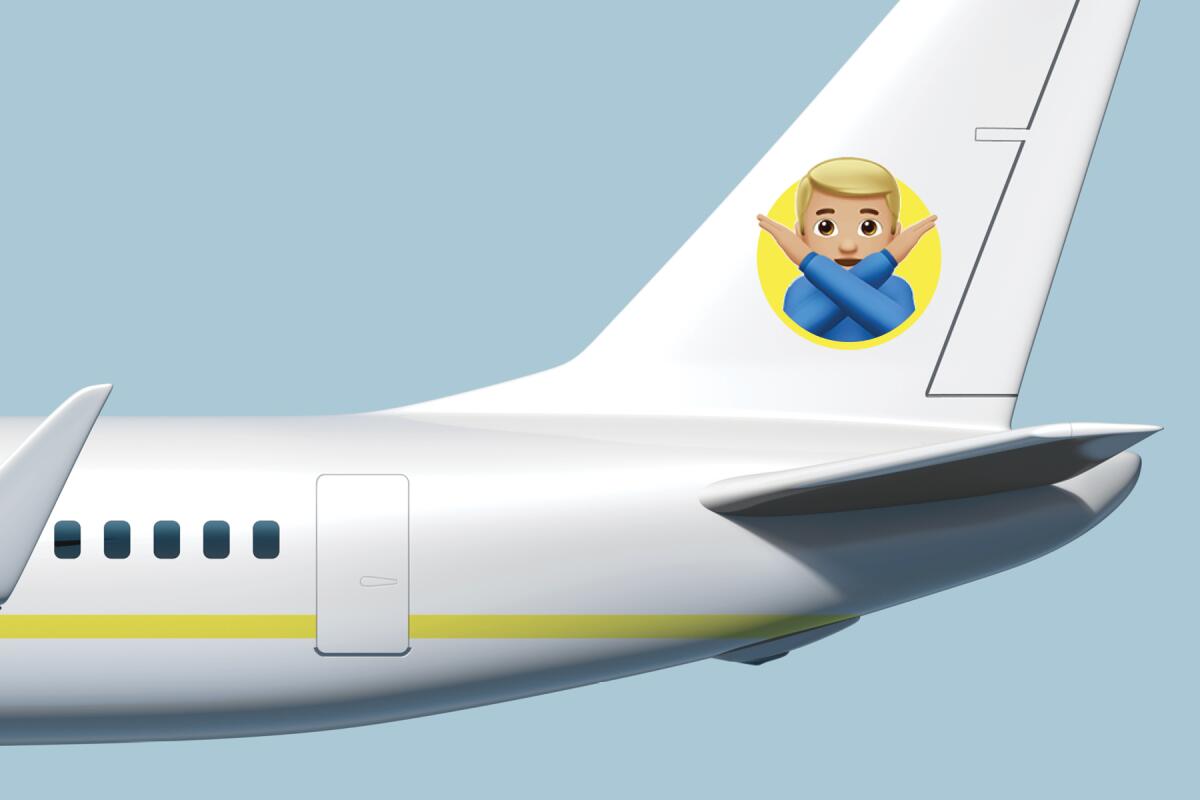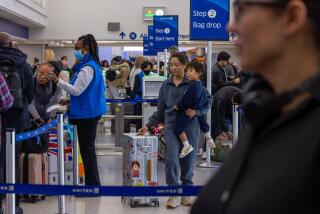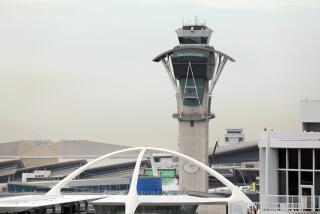A California law may help travelers recoup money they’ve lost

I purchased two one-way tickets through Expedia on Air Canada — one from LAX to Toronto on May 7 and a return from Toronto to LAX on May 10.
Air Canada has canceled the flights. Air Canada says I must deal with Expedia. Expedia says I do not get my money back because Air Canada says this is not an international flight. Am I missing something? I recall learning in geography that Canada is a separate country. If this was considered an international flight, would I get my money back?
Expedia’s rules for using this credit are very strict. I do not want this credit or their rules. I want my money back.
— Michele Breslauer, Los Angeles
Answer: Tough.
That’s essentially what Air Canada told Expedia about Breslauer’s ticket, and now it’s what Expedia is telling Breslauer.
“After contacting Air Canada to determine Ms. Breslauer’s eligibility for a refund, they’ve stated they are not offering refunds for flights canceled due to COVID-19,” said Alexis Tiacho of Expedia. “They also referred us to their policy here.
“We know this isn’t the resolution Ms. Breslauer was hoping for. As refund eligibility is determined by the airline and not Expedia, I’d recommend reaching out to Air Canada directly for more information on their policies.”
I would be tempted to leave the matter there — at least there’s a voucher, right? — but for two things and a couple of possible silver linings.
First, not all airlines are playing by the rules when it comes to refunds for flight cancellations. Some have stalled; some have played a version of the “hide the pea” game and still others seem to have some sort of memory lapse, forgetting that their contracts of carriage require them to give a refund if they cancel the flight and cannot re-accommodate a passenger.
Others, including JetBlue and Alaska, are upfront about their obligations, but some of their brethren? Not so much.
Air Canada, in fact, has done so little that it wound up on a list of airlines making getting a refund harder, a group assembled by Scott McCartney, the Wall Street Journal’s longtime Middle Seat columnist.
Ditto, said Brett Snyder, formerly an airline employee and founder of the Cranky Flier website. “Air Canada has been refusing refunds. The Canadian government effectively gave them a free pass, but DOT has not, so they do need to give refunds for travel that touches the U.S. if there’s a significant change in schedule.”
The U.S. Department of Transportation? Why should Air Canada play by U.S. rules?
Because the DOT says it has to.
“The obligation to provide refunds when scheduled flights are canceled or significantly delayed applies to U.S. and foreign carriers operating at least one aircraft having a seating capacity of 30 or more seats to, within, or from the United States,” a DOT representative said in an email. “Such carriers have an obligation to provide refunds for flights to, within, and from the United States if:
“They cancel a flight and the passenger chooses not to accept the alternative provided by that airline or they make a significant change in scheduled departure or arrival time, airports used, or type of flight (e.g., a change from nonstop service to a flight with a stop) and the passenger chooses not to travel.”
As for the silver linings, there are two. The first is that you can file a complaint with the DOT by clicking this link or going to bit.ly/DOTcomplaint.
That may not lead to a resolution, but it will at least record a submission of the dissatisfaction.
The second silver lining is the more powerful of the two, and that is protection afforded by the California Seller of Travel Law. The law, established in 1995, helps safeguard consumers. It asks that any entity that does business in California register and maintain a California Seller of Travel number.
It allows consumers to request restitution through the Travel Consumer Restitution Corp., which administers the program that allows consumers to file a claim. Alas, Air Canada isn’t listed as a California Seller of Travel, but right there under the Letter E is Expedia, Registration No. 2029030, which is good through March 14 of next year.
One last piece of advice for consumers: It’s often better to book directly with an airline.
There are reasons to use online travel agencies, said George Hobica, founder of Airfarewatchdog.com, which was later bought by Expedia.
“People still use [online] travel agencies for packages that often cost less than buying air and hotel separately plus for one-stop shopping,” Hobica said. “They also show you if it’s cheaper to fly out on one airline and back on another, and they’ll sometimes display, side by side, flights on a particular route at one price and a code share offered by another airline at a lower price but on the exact same flights as the more expensive airline.”
On the other hand, not getting caught in a back-and-forth between two entities, neither of which has the consumer’s back, may be the best reason to book a simple trip with the airline.
We’ll keep you posted on what happens next with Breslauer’s claim. Until then, keep good records, pay with a credit card and don’t let anyone flimflam you out of your hard-earned travel dollars.
Have a travel problem or complaint? Write to travel@latimes.com. We regret we cannot answer every inquiry.
More to Read
Sign up for The Wild
We’ll help you find the best places to hike, bike and run, as well as the perfect silent spots for meditation and yoga.
You may occasionally receive promotional content from the Los Angeles Times.







